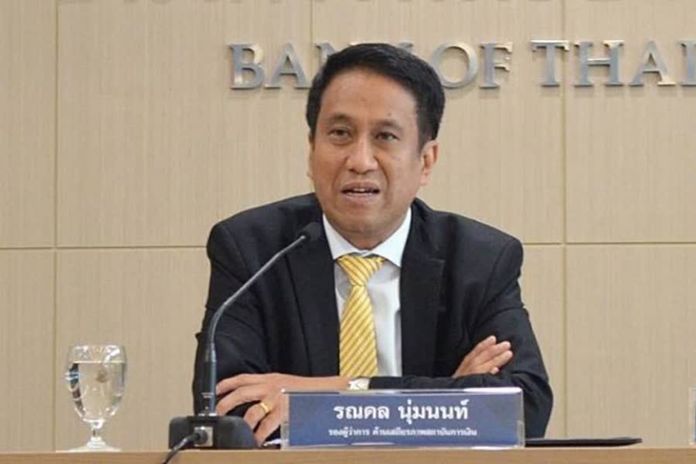
The Bank of Thailand (BOT) has assigned commercial banks to develop a fund management plan, ranging from one to three years, to help people and entrepreneurs deal with a lack of income and a shortage of liquidity. The plan must take into consideration economic trends and debtors’ ability to operate businesses after the COVID-19 pandemic ends.
During the formulation of the fund management plan, the commercial banks will not be making interim dividend payments, and stock repurchases will also be suspended, to help the business sector in light of the COVID-19 pandemic. These efforts have recently been undertaken by central banks in other countries, such as England, where its commercial banks have been instructed to halt their dividend payments and cash bonuses to senior staff. Countries in the European Union (EU) and New Zealand have also followed suit.
The BOT’s Deputy Governor of Financial Institutions Stability, Ronadol Numnonda, said these measures will only affect the banks’ shareholders in the short term, but they will help strengthen the country’s financial institutions, while adding stability to the funds. They will serve as a buffer, as the global economy remains volatile. If there is another COVID-19 outbreak, commercial banks will be able to issue more loans to support the business sector. They are part of a policy to reduce the concerns of both shareholders and depositors, who may misunderstand that the banks are experiencing financial problems.
Today, stocks in the banking sector decreased five to six percent, led by Kasikornbank (KBank), Siam Commercial Bank (SCB) and Bangkok Bank (BBL), due to the BOT’s recent announcement. Investors are also concerned that levels of non-performing loans (NPLs) will likely increase, as the economy works to recover from the impact of COVID-19. (NNT)
 |
 |
 |





